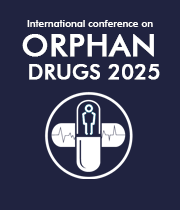Genomics and Proteomics of Rare Disease
Despite our understanding of the genetic mutations that underlie uncommon diseases, little is known about their cellular repercussions. Because developments in genome sequencing have far surpassed the throughout in functional follow-up investigations, functional studies on rare diseases have fallen behind gene identification. Furthermore, the pharmaceutical and biotech firms have few incentives to invest in drug research and development for diseases that only impact a small number of people. Rare diseases have always been investigated at the cellular level on an individual basis. A study published recently phenotyped a library of 2,890 rare disease-causing variations and their wild-type alleles in detail. Whole genome sequencing can provide insight into the genetics of rare disorders, it can miss up to half of the patients that are screened. The researchers discovered that integrating proteomics and genomics increases rare disease diagnostic accuracy.
- Protein Modification
- Protein Translation
- Genomic Studies
- Transcriptomics

Sergey Suchkov
The Russian University of Medicine & Russian Academy of Natural Sciences, Russian Federation
Vladlen Slepak
University of Miami, United States
Harsha Rajasimha
Jeeva Clinical Trials, Inc, United States
Vladlen Slepak
University of Miami, United States
Harsha Rajasimha
Jeeva Clinical Trials, Inc, United States
Sergey Suchkov
The Russian University of Medicine & Russian Academy of Natural Sciences, Russian Federation


Title : Emerging solutions for inclusive orphan drug clinical trials management
Harsha Rajasimha, Jeeva Clinical Trials, Inc, United States
Title : Ectopically expressed olfactory receptors as an untapped family of drug targets. Discovery of agonists and antagonists of OR51E1, an understudied G protein-coupled receptor
Vladlen Slepak, University of Miami, United States
Title : Personalized and Precision Medicine (PPM) as a unique healthcare model to secure the human healthcare and biosafety among childhood
Sergey Suchkov, The Russian University of Medicine & Russian Academy of Natural Sciences, Russian Federation
Title : Orphan and rare disease emerging as a global public health priority through the view of personalized and precision medicine: How to use the latter to revolutionize pediatric services
Sergey Suchkov, The Russian University of Medicine & Russian Academy of Natural Sciences, Russian Federation
Title : Personalized and Precision Medicine (PPM) though the view of reproductive healthcare, pediatric services and natural family planning: an option for clinicians and caregivers realize the potential of genomics-informed care to secure the individualized human biosafety
Sergey Suchkov, The Russian University of Medicine & Russian Academy of Natural Sciences, Russian Federation
Title : Democratizing ASO drug discovery at La Jolla Labs
Melissa Keenan, La Jolla Labs, United States